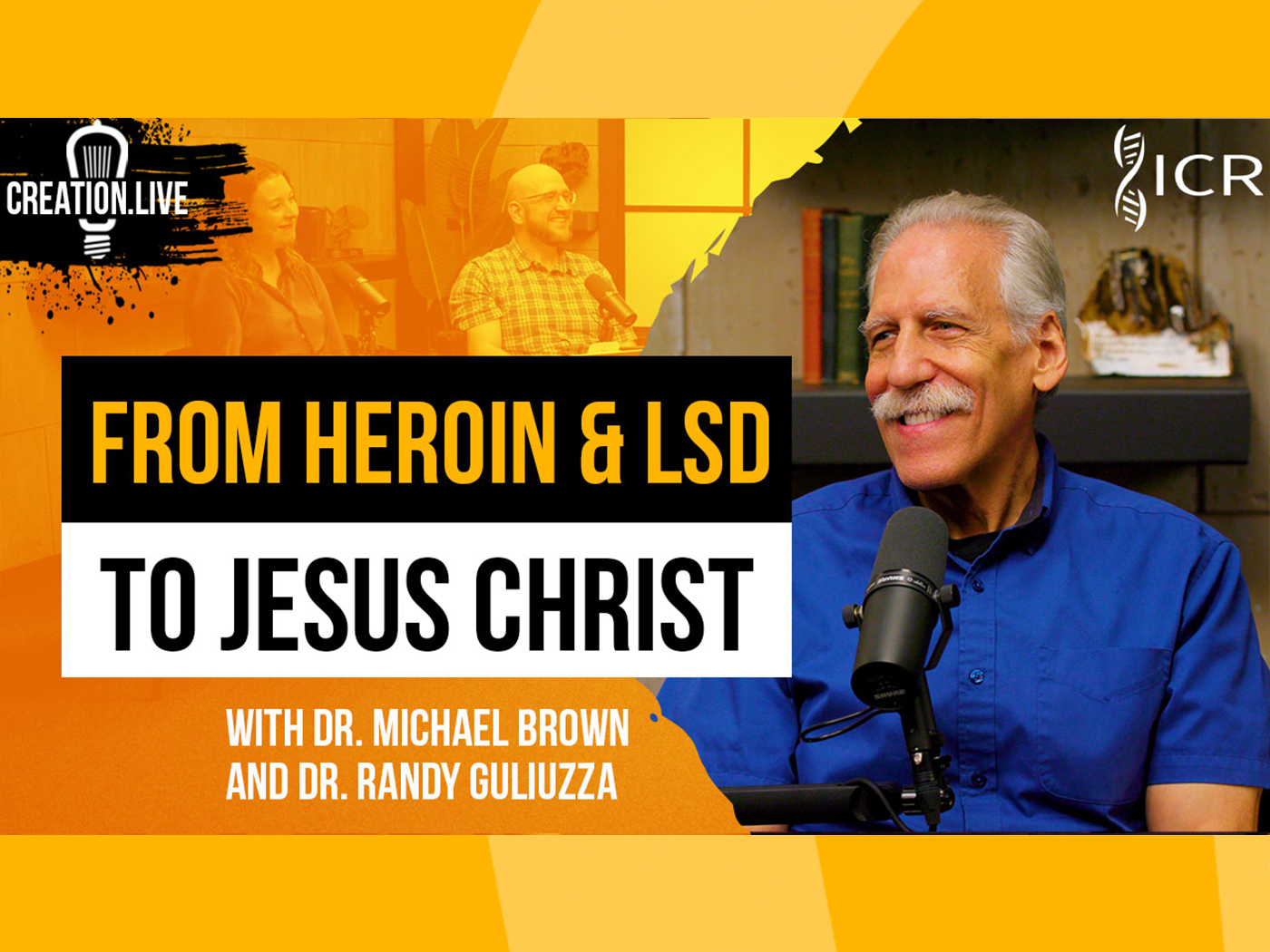"He that planted the ear, shall He not hear?
He that formed the eye, shall He not see?" (Psalm 94:9).
The origin of human language—the ability of men and women to communicate with one another in intelligent, symbolic, often abstract speech and writing is a complete mystery to evolutionists.
Evolutionary paleoanthropologists claim that they have certain tenuous evidences of human physical evolution in the various fragments of hominid skeletal parts that have been excavated in Africa and elsewhere. But they have no evidence whatever for the origin of language—and language is the main entity that separates man from the apes and other animals.
The authoritative Atlas of Languages confirms this fact and also the fact that apes can never be taught to speak.
Language is perhaps the most important single characteristic that distinguishes human beings from other animal species. . . . Because of the different structure of the vocal apparatus in humans and chimpanzees, it is not possible for chimpanzees to imitate the sounds of human language, so they have been taught to use gestures or tokens in place of sounds . . . but chimpanzees never attain a level of linguistic complexity beyond the approximate level of a two-year-old child.1
Similarly, Lewis Thomas, the distinguished medical scientist who was the longtime director and chancellor of the Sloan Kettering Cancer Center in Manhattan has affirmed that:
. . . language is so incomprehensible a problem that the language we use for discussing the matter is itself becoming incomprehensible.2
A man recognized universally as one of the world's greatest linguists is Dr. Noam Chomsky, Professor of Linguistics at the Massachusetts Institute of Technology. He himself is a thoroughgoing evolutionist—in fact, even an atheist and a Marxist. Yet he also recognizes the present impossibility of accounting for language by naturalistic evolution.
Human language appears to be a unique phenomenon, without significant analogue in the animal world. . . . There is no reason to suppose that the "gaps" are bridgeable. There is no more of a basis for assuming an evolutionary development of "higher" from "lower" stages in this case, than there is for assuming an evolutionary development from breathing to walking.3
Not only is there no animal that is capable of achieving anything like human speech, but also there is, at the other end of the scale, no human tribe that does not have a true language.
No languageless community has ever been found.4
There are no normal humans that cannot speak and no animals that ever can. This is the great unbridgeable gap between all mankind and every component of the animal kingdom.
Evolutionary scientists have made many attempts to teach chimpanzees to speak, but all to no avail.
But though animal trainers and investigators have tried since the seventeenth century to teach chimpanzees to talk, no chimpanzee has ever managed it. True, a chimpanzee's sound-producing anatomy is fundamentally different from our own. But chimpanzees might still produce a muffled approximation of human speech if their brains could only plan and execute the necessary articulate maneuvers. To do this, they would have to have our brains.5
A recent book by an authority in this field, Terence Deacon, has the insightful title, The Symbolic Species (published by the W. W. Norton Co.). Another authority in linguistics reviewing the book uses an even more provocative title, "Babel's Cornerstone," for his review.
Time after time, in sorting through the countless proposals put forward by language evolutionists, Deacon makes the right choices. Could language have come directly out of some prehuman trait? No. Does it resemble forms of animal communication? No. . . . no ape, despite intensive training, has yet acquired even the rudiments of syntax, and many language acquisitionists insist that syntax is there even at infants' one-word stage. . . . Deacon does not begin to grapple with the really difficult problems—how words emerged, how syntax emerged. But these problems lie at the heart of language evolution.6
Even such a dogmatic Darwinist as Richard Dawkins, England's most influential evolutionary biologist, finds it impossible to explain the origin of human language.
My clear example is language. Nobody knows how it began.
. . . Equally obscure is the origin of semantics; of words and their meaning.7
Dawkins then comments on the high degree of complexity in each of the world's many languages, including even those of the most "primitive" tribes. He notes that:
. . . all the thousands of languages in the world are very complex (some say they are all exactly equally complex, but that sounds too ideologically perfect to be wholly plausible). I am biased towards thinking it was gradual, but it is not quite obvious that it had to be. Some people think it began suddenly, more or less invented by a single genius in a particular place at a particular time.8
Our distinguished British evolutionist here is coming close to a Biblical perspective, though he undoubtedly would indignantly repudiate any such suggestion.
But Philip Lieberman even feels constrained to use Biblical terminology as he concludes his own wistful treatment of this subject.
For with speech came a capacity for thought that had never existed before, and that has transformed the world. In the beginning was the word.9
Although Dr. Lieberman had no such intent when he quoted John 1:1 in this way, he actually was giving the true explanation for the origin of language. It was, indeed, by "the Word" that "all things" were created in the beginning (note John 1:3), and that would include human language. There is no better—in fact, no other—workable and plausible explanation.
God in Christ created Adam and Eve at "the beginning of the creation" (note Mark 10:6, quoting Genesis 1:27) and immediately communicated with them in language which their created brains and minds could understand (note Genesis 2:16,17 and Genesis 3:9-19). They and their descendants continued to use this created language, even speaking to God in prayer in that language (Genesis 4:26) until the great rebellion at Babel, when "the Lord did there confound the language of all the earth: and from thence did the Lord scatter them abroad upon the face of all the earth" (Genesis 11:9).
The people scattering from Babel probably represented about 70 basic languages, judging from the seventy ancestral tribes listed in the Table of Nations (Genesis 10). These have, in time, proliferated into many others.
In the last decade of the twentieth century, it is estimated that over 6,000 languages are spoken in the world.10
Historical linguists believe all these languages have developed within about 100 language "families." As to whether these could have developed just since Babel, Dr. Les Bruce has said,
It is not too difficult to imagine that 70 languages have in 5000 years diversified into 100 distinct-looking families today.11
If Professor Dawkins and his fellow evolutionists really want to know where man's ability to speak and communicate originated, but are still unwilling to
believe the clear account in Genesis, they also would do well to hear God's rebuke
to Moses: "And the Lord said unto him, Who hath made man's mouth? . . . have not I the Lord? Now therefore go, and I will be with thy mouth, and teach thee what thou shalt say" (Exodus 4:11,12).
It was God who, as the eternal Word Himself, created the marvelous gift of human language along with the mouth and tongue and all the intricately complex vocal and mental apparatus with which to use it. It is eminently reasonable to conclude that God's gift of language to man was so that He could reveal His Word and will to us and that we could then respond in faith and praise to Him.
References
1 Stephen Matthews, Bernard Comrie, and Marcia Polinsky, editors: Atlas of Languages: The Origin and Development of Languages Throughout the World (New York: Facts on File, Inc., 1996), p. 10.
2 Lewis Thomas, "On Science and Uncertainty," Discover (vol. 1, October 1980), p. 59.
3 Noam Chomsky, Language and Mind (New York: Harvourt, Brace, Jovan-ovich, 1972), pp. 67,68.
4 Matthews, et al., op. cit., p. 7.
5 Philip Lieberman, "Peak Capacity," The Sciences (vol. 37, Nov/Dec 1997), p. 27.
6 Derek Bickerton, "Babel's Cornerstone," New Scientist (vol. 156, October 4, 1997), p. 42.
7 Richard Dawkins, Unweaving the Rainbow (Boston, Houghton-Miflin Co., 1998), p. 294.
8 Ibid., p. 295.
9 Philip Lieberman, op. cit., p. 27.
10 Matthews, et al., p.10.
11 Les Bruce, personal communication. Dr. Bruce is a research linguist with Wycliffe Bible Translators and a professor in the Graduate School of Applied Linguistics in Dallas.
*Dr. Morris (1918-2006) was Founder of the Institute for Creation Research.
Cite this article: Morris, H. 2001. The Mystery of Human Language. Acts & Facts. 30 (3).





















